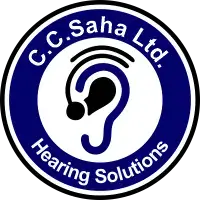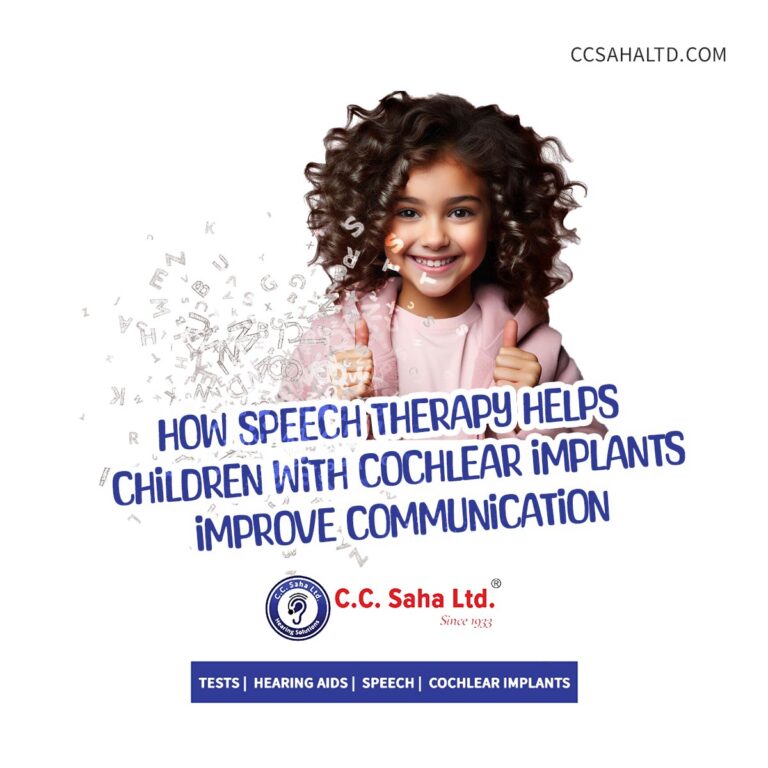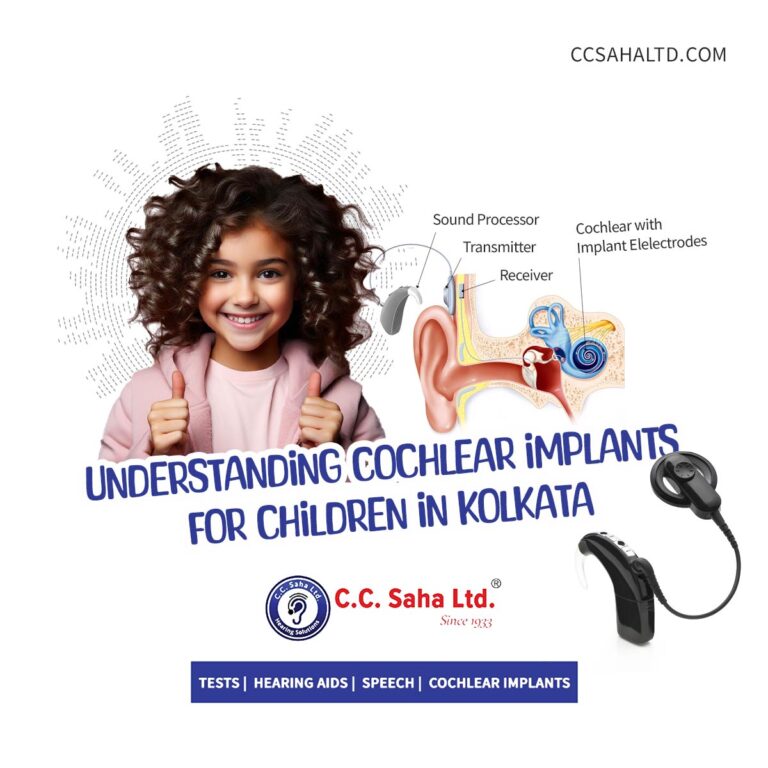Cochlear Implants
RESTORING HEARING AND TRANSFORMING LIVEs
In our previous blogs, we have discussed in detail about hearing loss. Hearing loss is a pervasive challenge that extends far beyond the impairment of a singular sense—it permeates the very fabric of individuals’ lives, impacting their connections, experiences, and overall well-being.
As we navigate through the intricacies of hearing loss, it becomes evident that the quest for a transformative solution has been ongoing for centuries. Enter Cochlear Implants—a ground-breaking innovation that stands at the forefront of auditory restoration. In this article, we’ll unravel the impact of hearing loss, setting the stage for a closer examination of how Cochlear Implants have emerged as a revolutionary and life-altering solution for those seeking to reclaim the symphony of sounds that colour their world.
Table of Contents

The Impact of Hearing Loss on Individuals and Their Lives
Hearing loss isn’t just about not being able to hear. It touches every part of life, from friendships to learning to enjoying simple sounds. Imagine not being able to hear the laughter of a loved one or the rustling of leaves in the wind. That’s the reality for many people dealing with hearing loss.
But wait, there’s good news! Enter Cochlear Implants. They’re not just gadgets. They’re like a personal guide helping people reconnect with the world of sound. Imagine being able to hear your favourite song again, or the voice of a friend you’ve missed. That’s the magic of Cochlear Implants.
In simple terms, a cochlear implant is a special device that helps people hear better. It’s a great option for those who struggle with hearing loss and find that regular hearing aids just don’t cut it.
How do Cochlear Implants function?
Hearing aids just make sounds louder, but cochlear implants do something entirely different. They skip the damaged parts of the ear and send sound signals straight to the hearing nerve.
Here’s how it works: a sound processor, worn behind the ear, picks up sounds. These sounds are then sent to a receiver tucked under the skin, also behind the ear. This receiver sends the sound signals to electrodes deep inside your ear, in a part called the cochlea.
These signals make the hearing nerve send messages to the brain. The brain understands these messages as sounds. But remember, the sounds won’t feel exactly like natural hearing.
Now, learning to understand these new sounds takes a bit of time. It’s like learning a new language! But don’t worry, most people with cochlear implants get a lot better at understanding speech within 3 to 6 months of using the implant. The world of sound is just a few steps away!
What tests are done before a cochlear implant?
Your hearing team may do the following:
Hearing tests
An audiologist may perform tests to determine the level of your hearing loss, such as your ability to hear sound and interpret speech with and without hearing aids. Auditory brain stem response may be included in hearing testing. This examination examines the neural connections between your inner ear and your brain. Audiologists may use this test to evaluate hearing in children and adults who are unable to do pure-tone tests.
Vestibular test battery
Your inner ear is also in charge of your balance. Vestibular tests are a way to assess the health of your inner ear.
Imaging tests
To assess your inner ear anatomy, your doctor may suggest a magnetic resonance imaging (MRI) test or a computed tomography (CT) scan.
Once you have been cleared to move forward with surgery, activation and rehabilitation.
Types of Cochlear Implants
All cochlear implant devices are good and function in the same manner. The primary distinctions to consider while selecting a device are:
Aesthetics — consider how the external sound processing equipment appears and fits. Some are intended to blend in with the hair or scalp, whilst others have lighter colours or different designs for sound processing equipment that may be more obvious.
Features — check what characteristics are accessible with an implant, such as Bluetooth connectivity, waterproofing, and the capacity to endure impact (for example, in sports).
Lifestyle factors — determine which cochlear implants operate best in different contexts. Some are more appropriate for music listening, while others are better suited to active lives or sports.
Accessories and upgrades — It is important for you to know the availability of accessories, the frequency with which you may upgrade the hardware, the length of the warranty, and any other aspects that are crucial to you.
At CC Saha Clinic we provide cochlear implants from three manufacturers
Cochlear implant types differ depending on the location of the external sound processor. External sound processors are one of the pieces of equipment used in cochlear implants. The processor may be:
- Behind your ear.
- Attached to your clothes.
- On your scalp.
Cochlear Implantation Procedure
A small cut (incision) will be made behind your ear, and a small hole will be formed in the section of the skull bone (mastoid) where the internal device will be placed.
Your surgeon will next make a tiny incision in the cochlea to thread the electrode of the internal device. The skin incision is sewn up, and the internal gadget is placed beneath your skin.
Activation of the Cochlear Implant
To activate the cochlear implant, an audiologist will:
- Adjust the sound processor to fit you or your kid
- Inspect the cochlear implant components to ensure they operate fine
- Determine the sounds that you or your kid hears
- Provide you with instructions on how to properly care for and use the equipment
- Configure the device so that you can hear to the best of your ability
Rehabilitation
Rehabilitation entails teaching your brain to recognise sounds received through the cochlear implant. Speech and common noises will sound different than you recall.
Your brain needs time to process what these noises signify. This process is ongoing and is best accomplished by wearing the speech processor continually throughout awake hours.
Regular, lifelong follow-up visits to check and programme the device and do auditory testing can help you get the most out of your cochlear implants.
Benefits of Cochlear Implants
Cochlear implants are beneficial for adults and children of all ages (6–months and above).
Cochlear implant recipients report improved:
- Ability to hear speech without relying on visual signals
- Recognition of ambient noises
- Listening ability in loud places
- Hearing TV, music, and phone conversations
- Ability to Locate sound sources
Risks
Predicted outcomes
Cochlear implant surgery is very safe.
Risks of cochlear implantation can include:
Loss of residual hearing
The device’s installation in some people the implantation can result in the loss of any remaining, unclear, natural hearing in the implanted ear.
Brain and spinal cord membrane inflamed (meningitis)
Meningitis can develop following cochlear implant surgery. Adults and children are typically given vaccines to lessen the risk of meningitis before implantation. This extremely rare issue affects less than one in every 1,000 patients who have cochlear implants.
Failure of device
Sometimes surgery is required to repair or replace a defective inside device. This happens to less than 5% of people throughout time.
Complications
Complications are rare and can include:
- Bleeding
- Facial paralysis
- Infection at the surgery site
- Device infection
- Balance problems
- Dizziness
- Taste problems
- New or worsened ear noise (tinnitus)
- Spinal fluid leak
At C.C. Saha Ltd., we provide a comprehensive range of hearing solutions that include the testing of a patient’s ability to detect tones at different frequencies. Our highly skilled Audiologists conduct a thorough examination, taking into account the patient’s hearing loss history, lifestyle choices, and needs, and then recommend the best possible hearing solution.
We are present across the city of Kolkata, at Esplanade, Prince Anwar Shah Road, Dunlop, Salt Lake, and Barasat. We also have clinics at Midnapore and Burdwan.
Read More...
Understanding Cochlear Implants for Children in Kolkata
Sudden Hearing Loss – Its Causes & Solutions at CC Saha Hearing Clinics
How Noise Pollution is leading to Deafness in Kolkata
Hearing Loss and the Risk of Alzheimer’s
Noise Cancelling Hearing AidsBluetooth in Hearing Aids
References
- https://www.dukehealth.org/treatments/ear-nose-and-throat/cochlear-implant-surgery/cochlear-implant-candidate
- https://www.mayoclinic.org/tests-procedures/cochlear-implants/about/pac-20385021
- https://my.clevelandclinic.org/health/treatments/4806-cochlear-implants
- https://healthcare.utah.edu/ent/treatments-services/cochlear-implants
- https://www.hopkinsmedicine.org/health/treatment-tests-and-therapies/cochlear-implant-surgery
- https://www.webmd.com/healthy-aging/understanding-cochlear-implants
Hashtags
#CochlearImplants #HearingRevolution #CochlearJourney #SoundTransformation #HearToConnect #TechForHearing #LifeAfterSilence #GlobalHearingCare #CochlearCommunity #InnovationInSound #EmpowerWithHearing #BeyondDisabilities #AuditoryWellness #FutureOfHearing #UnlockingSound #HearTheJoy #AccessibleHearing #CochlearAwareness #EarsToTheFuture #TechForInclusion #HearingHope #CCSaha #CCSahaltd #HearingClinic







